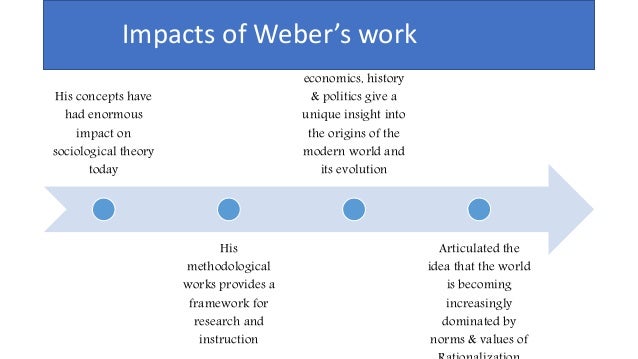Have you ever wondered why people act the way they do? Why some individuals dedicate their lives to social causes, while others strive for personal gain? These fundamental questions about human behavior lie at the heart of Max Weber’s groundbreaking sociological theory. It’s not just about understanding why we behave the way we do, but about grasping the complex forces that shape our societies and influence our individual actions.

Image: www.pinterest.ch
Max Weber, a German sociologist, philosopher, and economist, revolutionized the way we perceive social interactions and the forces that drive them. He believed that the true essence of society lies in the actions of individuals, and his theory delves into the motives and meanings behind these actions. While other sociologists focused on societal structures, Weber sought to understand the human mind and its impact on the world around us.
The Building Blocks of Weberian Sociology:
Weber’s sociology is a vast and multifaceted field, but its core lies in the concept of “social action.” At its simplest, social action refers to any behavior by an individual that is influenced by other individuals or the wider social context. Weber argued that social action is driven by four key motivations:
- Traditional Action: Driven by custom, habit, and deeply ingrained traditions. This type of action is rooted in the past and often reflects the established patterns of behavior within a community.
- Affectual Action: Guided by emotions, feelings, and subjective experiences. It’s the impulsive response arising from immediate emotions, such as anger, love, or fear.
- Value-Rational Action: Based on conscious and deliberate commitment to a set of values. This action involves carefully weighing the means and ends based on internal ethical principles and beliefs.
- Instrumental-Rational Action: Driven by a calculated pursuit of specific goals and interests. This is the most common type of action in modern societies, where individuals weigh their options and choose the most efficient means to achieve their desired outcome.
Weber’s Key Concepts:
To fully grasp Weber’s sociology, it’s essential to understand the key concepts that underpin his theory.
- Rationalization: This refers to the increasing dominance of logic, efficiency, and calculability in modern society. Weber saw this as a defining characteristic of the modern world, replacing traditional values and beliefs with a focus on instrumental rationality.
- Bureaucracy: For Weber, bureaucracy was the embodiment of rationalization. It’s a hierarchical organizational structure characterized by formal rules, regulations, and impersonal relationships. While bureaucracy can enhance efficiency, it can also create rigid and impersonal systems that stifle creativity and individual agency.
- Protestant Ethic and the Spirit of Capitalism: In his seminal work, “The Protestant Ethic and the Spirit of Capitalism,” Weber argued that the Protestant ethic, especially Calvinism, fostered a distinct set of values that were conducive to the development of capitalism. He believed that the emphasis on hard work, frugality, and reinvestment encouraged economic growth and ultimately shaped the capitalist system.
- Ideal Types: Weber developed the concept of “ideal types” as analytical tools to understand social phenomena. They are conceptual models that highlight the most significant characteristics of a social phenomenon, but they are not meant to be a perfect representation of reality. Examples of ideal types include the “bureaucratic official” or the “charismatic leader.”
The Impact of Weber’s Theory:
Weber’s sociology has profoundly impacted the fields of sociology, economics, and political science. His theories have provided valuable frameworks for understanding:
- Social Change: Weber’s focus on rationalization helped elucidate the forces driving social transformations in modern society. His analyses of capitalism, bureaucracy, and social class have shaped our understanding of how societies evolve and change over time.
- Power and Social Stratification: Weber’s theory of social action emphasized the importance of power dynamics in shaping social interactions. His concept of “power” transcended mere economic factors and encompassed various forms of influence, including social, political, and cultural power.
- The Meaning of Culture and Religion: Weber’s work highlighted the importance of culture and religion in shaping individual behavior and social structures. His research on the Protestant ethic demonstrated how religious beliefs can have profound social and economic effects.

Image: www.slideshare.net
Actionable Insights from Weber’s Work:
Understanding Weber’s theories can provide valuable insights for individuals and organizations alike:
- Acknowledge the Power of Social Action: We must recognize the role of individual choices in shaping social structures. By understanding the motives behind our actions, we can create a more meaningful and intentional approach to our interactions.
- Balance Rationality and Emotion: Weber’s work highlights the importance of balancing rational thinking with emotional intelligence. While instrumental rationality can be efficient, it’s vital to consider the value-based motivations and emotional needs of people.
- Seek Meaning in Our Work: Weber emphasized the importance of finding meaning and purpose in our work. By aligning our values with our professional endeavors, we can create a sense of fulfillment and contribute to the larger social good.
Weber Sociology Theory
Conclusion:
Max Weber’s sociology offers a powerful lens to understand human behavior and the forces that shape our societies. By exploring the motivations behind our actions, recognizing the dynamics of power, and striving for meaning in our work, we can gain a deeper understanding of ourselves and the world around us. Weber’s insights remain relevant today, reminding us to challenge societal conventions, critically examine power structures, and constantly seek meaning in the world we create.
To delve deeper into Weber’s theories, explore his key works, including “The Protestant Ethic and the Spirit of Capitalism,” “Economy and Society,” and “The Methodology of the Social Sciences.” Share your thoughts and experiences on how Weber’s ideas have shaped your perspective on social action in the comments below.



/GettyImages-173599369-58ad68f83df78c345b829dfc.jpg?w=740&resize=740,414&ssl=1)


